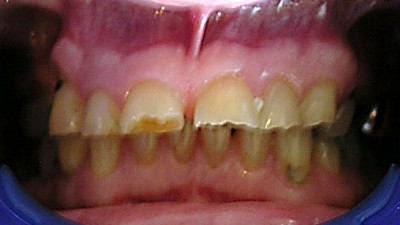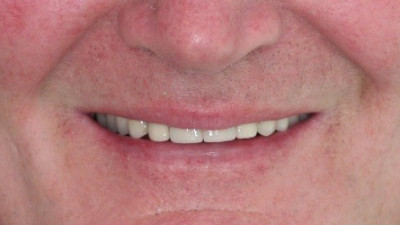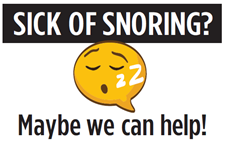Anti-snore mouth-piece. While these are standard size and in reality many do not stop people snoring a high percentage do help.
How to put these in and get to fit.
The silicone is medical grade and thermoplastic. This means it will mould when warmed to cup-of-tea temperature. This is done by placing the plastic stick into the slot. Put into a cup of hot (NOT BOILING) water that is as hot as you could sip covering the device.
After 30 seconds remove by holding the stick and test the temperature with your finger then the tip of your tongue.
DON’T put this into your mouth if it’s too hot!
When it’s safe to put into your mouth.
- Seat the device over both jaws.
- Bite down firmly.
- Suck all the air out of your mouth.
- Using fingers press cheeks against device.
- Press your tongue against the device to make sure the inside fits well.
Congratulations you have a well fitting device that should help your snoring.
How to care for them. Clean these under cool running water using a tooth-brush but no tooth-paste. Put them back in the container also with fresh clean water.
Denture tabs. These can be bought at most supermarkets. Take the tablet and break it into many pieces and use a small piece about every 3-5 days. The water goes green to show its working.
Issues.
1. Can you nose-breathe? While many people snore as they have blocked noses (email us for nasal spray) many simply are not used to nose-breathing and using your nose often reduces swelling and opens the nasal passages.
2. Health issues that involve heart and lungs. If you struggle to breathe, don’t use this until you can safely breathe through your nose.
3. Try wearing it before you go to bed to get used to it and nose-breathing.
- Saliva. Normally its food you put in your mouth – so your brain will think it’s probably food and make a lot of saliva. Over time your brain figures out it’s not food and saliva flow reduces to normal.
Dangers of snoring.
- Snoring carries dangers in many people. About half those who snore have some form of sleep apnoea. Apnoea means ‘no-breathing’. This is either due to something blocking the airway (obstructive sleep apnoea) of the brain failing to tell you ‘take a breath’! Many have a bit of both called mixed apnoea.
- Snoring is a form of suffocation. This will frighten the body, raise adrenaline levels, generate chemicals normally only seen when you have a heart attack, thereby damage blood vessels; raise blood pressure. Common issue for men are high blood pressure, reflux and putting on weight. For women, especially those post-menopausal or had hysterectomy are similar to men but also additional gynaecological problems. Recently showed that juveniles who snore show a similar pattern of brain harm as seen in Alzheimer’s.
- Partner disturbance. This is equally damaging to them as they also need their sleep.
Bruxism
A dentist sent me this picture asking about this man who lived in pain due to a head and neck injury and broken pelvis neither of which could properly heal. His appropriate bite was found by increasing his teeth height by a centimetre. His night-time airway was kept open and stopped his snoring which was so loud he slept alone but it was still too loud and the dog slept outside! When his bite was corrected his bruxing stopped and even delicate plastic survived the nights. When this level of improvement happened he was sent back to the dentist to get his teeth capped.



